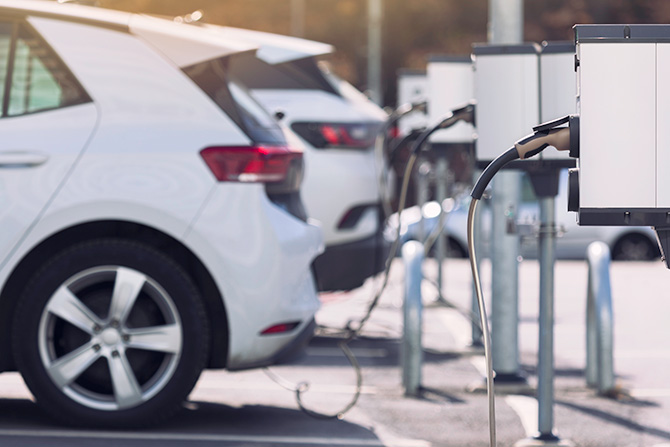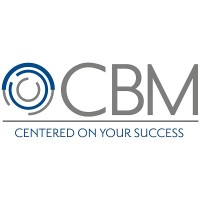Depreciation — Capital Asset Purchases
Capital investments have long been a useful way to reduce income taxes, and the Tax Cuts and Jobs Act (TCJA) further enhanced this technique by expanding bonus depreciation.
For qualified property purchased after Sept. 27, 2017, and before Jan. 1, 2023, businesses were able to deduct 100% of the cost of new and used (subject to certain conditions) qualified property in the first year that the property is placed into service. In 2023, the amount of the bonus depreciation began to decrease by 20% each year (80% bonus depreciation allowed for 2023, 60% allowed for 2024). Absent Congressional action, the deduction will be eliminated in 2027.
Special rules apply to property with a longer production period. Qualified property includes computer systems, purchased software, vehicles, machinery, equipment, office furniture, land improvements and qualified improvement property (QIP). QIP includes most interior improvements (non-structural).
Effective Jan. 1, 2022 under the TCJA, Section 163(j) business interest expense limitation calculation no longer allows for an add-back for depreciation, amortization and depletion to a company’s adjusted taxable income calculation. If a dealership has its business interest expense limited when including floorplan financing interest expense in the calculation, it is not eligible to take bonus depreciation in that tax year. The full amount of the floorplan financing interest expense will be deductible.
Additionally, under the TCJA, Section 179 expensing (deducting the entire cost) is available for computer systems, purchased software, vehicles, machinery, equipment and office furniture, as well as several improvements to nonresidential real property, including QIP, roofs, HVAC and fire and security systems. Beginning Jan. 1, 2023, the maximum deduction is limited to the amount of income from the business activity or $1.16 million. The allowed deduction begins phasing out when the amount of eligible property placed in service exceeds $2.89 million. Beginning Jan. 1, 2024, the maximum deduction and phase-out amount will be $1,220,000 and $3,050,000, respectively.
Credits
Electric Vehicle Charging Equipment Credit
For businesses that install new EV charging equipment after Dec. 31, 2022, the maximum credit is the lesser of 30% of the total cost or $100,000 per unit. However, there are new restrictions on eligibility, including that the charging equipment must be installed in low-income communities or non-urban census tracts. In order to qualify for the full 30% credit, the project must pay the prevailing wage for labor and meet certain apprenticeship requirements. If it does not, the credit is limited to 6%.The amount of the credit reduces the depreciable basis of the EV charging equipment.
New Clean Vehicle Credit
The original user of a new, qualified plug-in EV or fuel cell electric vehicle (FCV) placed in service after April 17, 2023, is potentially eligible for up to a $7,500 credit. The vehicle must have a GVWR of less than 14,000 pounds, and the battery must have a capacity of at least seven-kilowatt hours. The taxpayer must acquire the vehicle for use or lease (not for resale). The amount of the credit reduces the basis of the vehicle. Vehicles must undergo final assembly in North America and meet critical mineral and battery component requirements. Vehicles that meet either the critical mineral or battery component requirements may be eligible for a $3,750 credit, while those that meet both may qualify for $7,500. There are caps on the MSRP for eligible vehicles ($80,000 for trucks, vans or SUVs and $55,000 for all other passenger vehicles), and high-income taxpayers will not qualify for the credit.
Used Clean Vehicle Credit
Beginning Jan. 1, 2023, the purchaser of a qualified used EV or FCV from a licensed dealer for $25,000 or less may be eligible for a tax credit equal to 30% of the purchase price with a maximum of $4,000. The vehicle must be purchased for use and not for resale. The vehicle must be at least two years old, weigh less than 14,000 pounds and have a battery capacity of at least seven kilowatt hours. High-income taxpayers will not qualify for the credit.
Seller Reporting
In order for vehicles to qualify for the new or used clean vehicle credits, sellers must meet certain reporting requirements. Sellers must furnish a report to the buyer at the time of sale and to the IRS that includes information such as dealer name, address, VIN, make, model, placed in service date and maximum credit. The reports for 2023 are due to the IRS by Jan. 15, 2024.
Beginning Jan. 1, 2024, dealers must register with IRS Energy Credits Online in order to be able to submit the time of sale reports. The reports are due to the IRS no later than three calendar days from the date of sale.
Advance Payments of Buyer Clean Vehicle Credits to Dealers
Eligible buyers will also be able to elect to transfer the tax credit to the dealer beginning Jan. 1, 2024. Dealers must register to be able to submit the claims for advance payment. The advance payment request will be submitted with the time of sale report. The IRS intends to pay the advance payment claims to the dealers within 72 hours of the date when the time of sale report is submitted. Buyers, not dealers, would be responsible if the IRS determines that the buyer does not qualify.
Businesses that acquire an EV or FCV may be eligible for a commercial clean vehicle credit with a maximum of $7,500 for vehicles under 14,000 pounds or $40,000 for all other vehicles. Plug-in electric vehicles under 14,000 pounds must have a battery capacity of at least seven-kilowatt hours, while those weighing 14,000 pounds or more must have a battery capacity of at least 15 kilowatt hours. The vehicles must be acquired for business use or lease (not for resale) and the vehicles must be depreciated. The credit would reduce the depreciable basis of the vehicle. There is no limit on the number of credits, but they are non-refundable.
To read CBM’s full year-end tax bulletin, call (301) 986-0600 or go to https://www.cbmcpa.com/industries/automotive-dealerships/2023-year-end-tax-bulletin-virginia-automotive-dealerships/.







